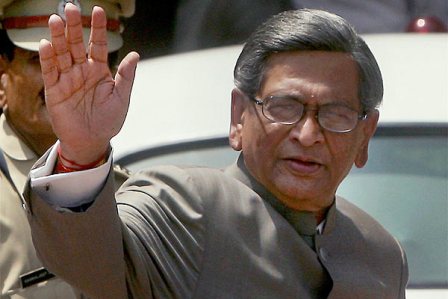
New Delhi, October 26: External Affairs Minister S.M. Krishna resigned on Friday ahead of the reshuffle of the Union Cabinet scheduled on Sunday.
The 80-year-old leader from Karnataka is believed to have sent his resignation to Prime Minister Manmohan Singh in the afternoon, sources said.
Indications are that with the Assembly elections due before next May in Karnataka the former Chief Minister may be given a party assignment in the state.
The resignation is also a clear indication that the Union Council of Ministers is set for a revamp on Sunday with the induction of new faces considered close to Rahul Gandhi and elevation of some young ministers of state.
Whether Mr. Gandhi himself would join the government or not was still a matter of speculation though sources say that sometime back he was inclined towards such a possibility.
Mr. Krishna was made the External Affairs Minister immediately after the elections in 2009 when UPA came back to power for the second time. His name has been part of the speculation whenever there was speculation about a Cabinet reshuffle.





Comments
Add new comment